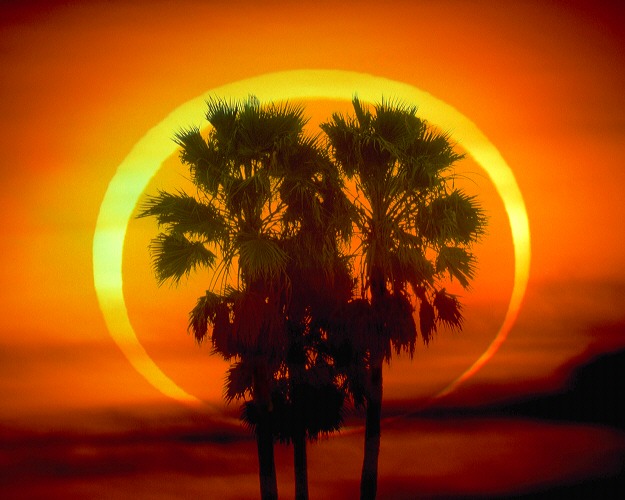A solar eclipse for observers located on Enceladus! The body eclipsing the Sun is the moon Mimas.
Have a look:
+++++++++++
In the first image below, we are located in space just behind Enceladus, watching Mimas shortly before covering the Sun. You see the dark edge of Enceladus on the right of the image.

In the next image we have moved towards Mimas, which is easy to recognize...

Finally we look 180 degrees back onto the "would-be" illuminated side of Enceladus, and notice the very extended annular eclipse shadow, cast by Mimas in front of the Sun...

If someone can dig out an accurate, calculational prediction of this event from the net, it could serve as another challenging test for Celestia's accuracy...
Enjoy,
Fridger




